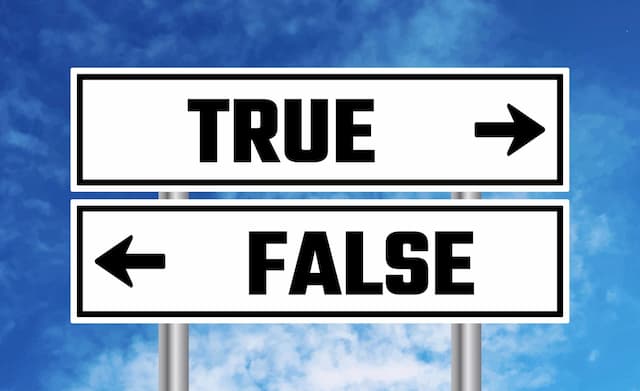Something Needs To Change (Review)
"Something Needs To Change is powerful. It’s heart-wrenching. It’s easy to read but hard to stomach. It’s worth your time, your attention, your thoughts, and your prayers. But remember one thing: when you finish reading it, something needs to change."
Disclaimer: I received a free copy of this book. I was not required to leave a positive review.
Have you ever been to the Himilayas? Have you ever trekked to the peak of the pinnacle of the world’s mountains? I have imagined looking out at the vastness of the jagged, snow-covered peaks with their icy blue, cloud wrapped splendor, but I doubt I’ll ever brave the days of hiking, sweating, shivering, and struggling it takes to ascend such heights.
David Platt has been up the mountain. Though he didn’t trek to the peak of Mount Everest—a feat that has only been accomplished by fewer than 1000 of the billions of human beings to ever live—he travailed through many of the steep, narrow paths on the Himilayas to see God’s glory magnified in creation (Ps. 19:1). It was every bit as glorious and more, leaving him lacking in sufficient words to describe what he saw.
However, he encountered far more than just the life-altering, awe-inspiring beauty of God’s created world. He looked in the face of deep darkness that has overtaken humanity since that devastating day that Adam and Eve ate the forbidden fruit. In Something Needs To Change: A Call to Make Your Life Count in a World of Urgent Need, Platt takes us on a visceral and introspective journey with him as he saw and felt some of the most shocking displays of spiritual and physical suffering on the planet.
Something Needs To Change is not your typical David Platt book. He admits that he has “taken a different approach in writing this book” because he doesn’t think we need “more exposition and explanation” (p. 4). He’s not saying we don’t need Scripture. He’s saying we need to do more than simply hear Biblical teaching and think, “wow that was powerful!” or “what great exposition!” only to walk away forgetting our reflection (James 1:24). He wants readers to apply the rich exposition and explanation of Scripture in real ways that impact the world with the gospel. He’s sharing how he learned this reality firsthand.
What did David Platt encounter in the Himalayas? A region of the world in which, out of 9 million people, there are likely fewer than 100 Christians. That’s 1/1000 of a percent of people in that region who profess to be Christian as compared to 75% of Americans. That level of spiritual darkness should make us weep. Most of the people there are either Buddhist, Hindu, or follow superstitions that have been ingrained in them since childhood. This led Platt to consider the reality of hell and the shocking apathy that he—and millions of professing Christians, including myself—is tempted to carelessly live with.
He also encountered a region of the world where approximately half of the children die. Many of them die of preventable and curable diseases that we blink our eyes at. A bout of diarrhea can turn into death in a matter of hours. Not to mention, the nearest hospital could be days’ journey down the steep and dangerous mountains of the Himalayas. Imagine carting your sick child for days to get to the nearest doctor’s office only to have them die on the way.
He met a man, Kamal, whose eye fell out due to an infection. He encountered a father who lost most of his children to cholera and his wife to suicide. He met a man who spent some of his childhood chained to a barn because of a hateful father’s abuse. He walked through villages absent of young women because they were forced to offer their bodies as sex slaves after being deceived into thinking they were going to help earn a living for their families.
A glimpse of this darkness led David to question his life and the work of ministry he had been doing. Why does God allow this to happen to others while he and his family have it so easy? How could he preach and teach about these realities while living in such ease and not urgently doing something about it? How could he, a pastor and author with seminary degrees and a prestigious position on the International Mission Board, see so much and not prayerfully do more? How could he see the physical needs and argue that only the spiritual needs mattered? As he read and journaled through Luke’s gospel, the Lord used His Word and the suffering of others to give him a new urgency.
Toward the end of his journey, he met people who saw the need for change and trusted God with their lives to do something about it. Of the numerous examples in the book, here is just one that he encountered at a small church in the mountains:
“Before the meeting, the church’s pastor had shared with me that his non-Christian parents died when he was just fifteen. A few years later, someone shared the gospel with him for the first time. He trusted in Jesus and was baptized, but as soon as this happened, the rest of his family abandoned him. His brothers told him to never come back, and he lost the inheritances his parents had left him. But this pastor and his people believe that Jesus is worth it. “Jesus is worth losing your family”. Then he quoted Mark 10:29-30…” (p. 102)
There is hope for the Himalayas. There is hope for our communities. Platt is not calling for us to move to the Himilayas or imitate his lifestyle and convictions. Some of us may need to move. Some will need to stay. All of us need to pray about what God is calling and strengthing us to do because He has created our lives to “count in a world of urgent need” (p. 195).
Platt doesn’t know the answer for how to change what needs to change, but He knows the God who does and he is relying on God’s Word to show him what to do. He doesn’t know where that will lead him or any of us, but he knows that God is calling us to play a part right now where we live.
Something Needs To Change is powerful. It’s heart-wrenching. It’s easy to read but hard to stomach. It’s worth your time, your attention, your thoughts, and your prayers. But remember one thing: when you finish reading it, something needs to change.






